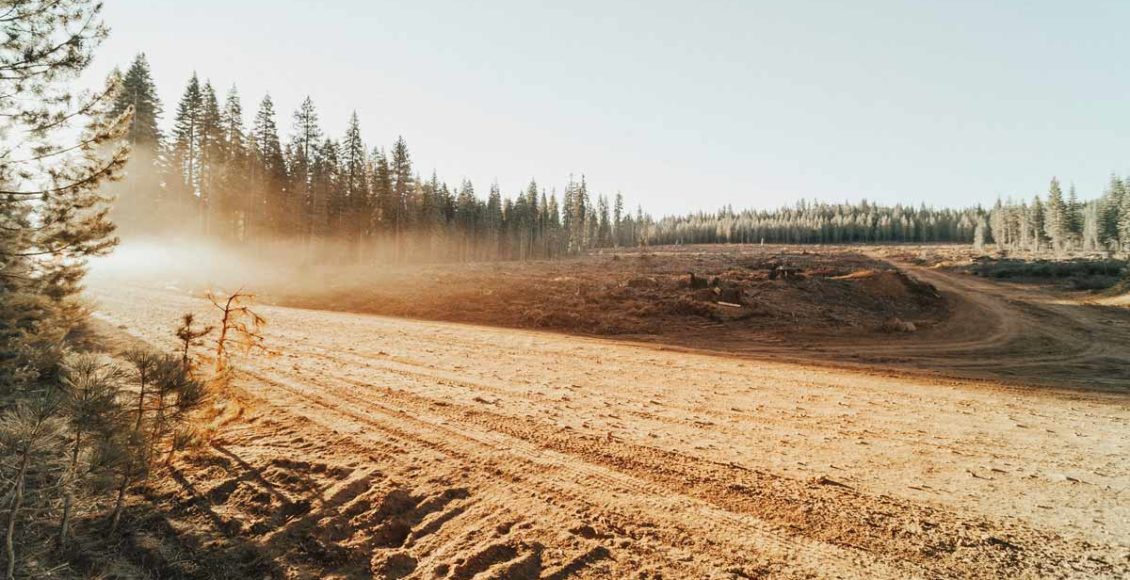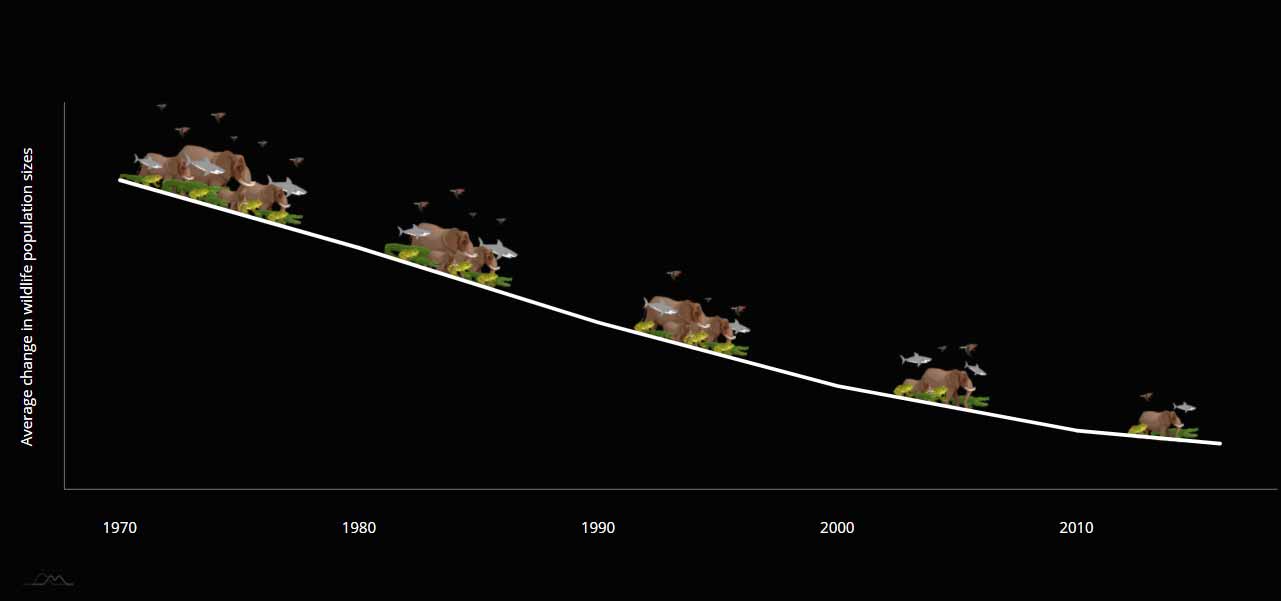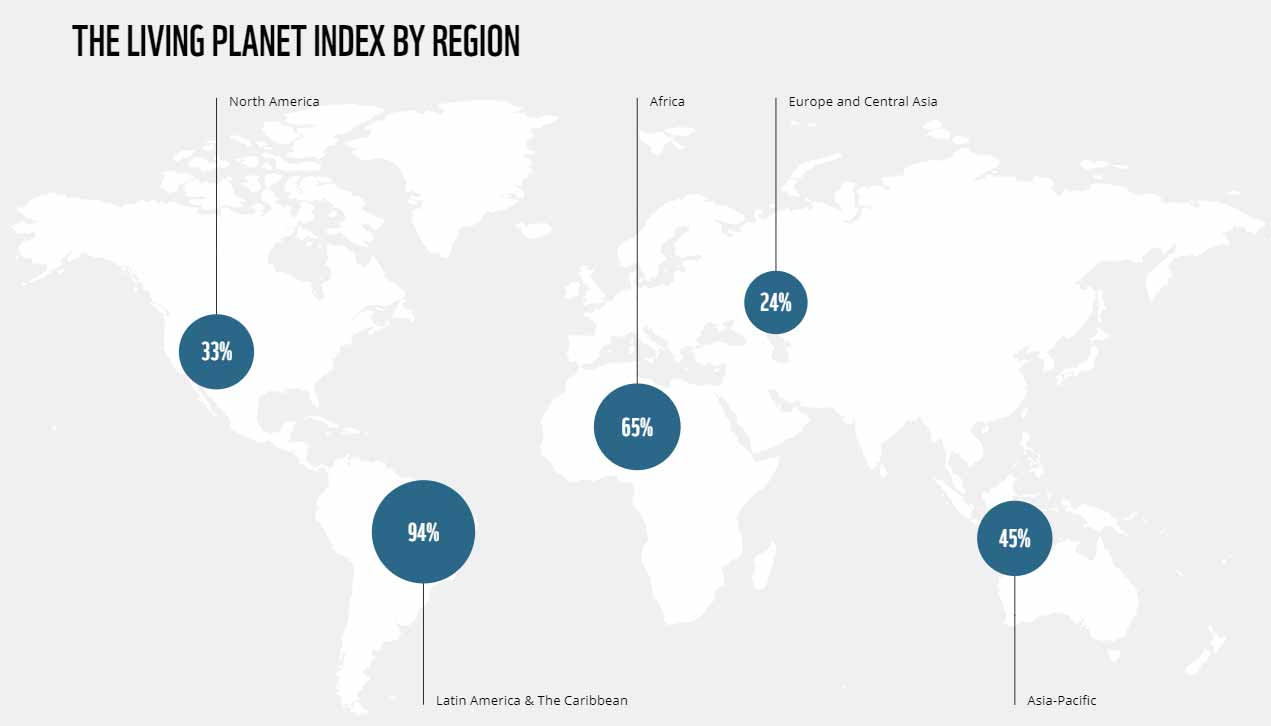We are wiping out wildlife at an “unprecedented” rate with wildlife populations down by 68 percent on average since the 70s, according to WWF

The World Wildlife Fund (WWF) has released the Living Planet Report 2020
- There has been a 68% plunge in wildlife population sizes since 1970.
- Deforestation and unsustainable agriculture have been identified as the main causes.
- People have altered 75% of the Earth’s ice-free land surface.
- Changing our diets, switching to renewable energy sources, and putting pressure on governments can help save our planet.
The findings of WWF’s Living Planet Report 2020 are terrifying.
Humans are harming the planet and wiping out wildlife populations at a striking, ‘unprecedented’ rate. The report has shown that ‘the population sizes of mammals, birds, fish, amphibians and reptiles have seen an alarming average drop of 68% since 1970’. Keeping in mind that 68% is an average percentage, some species have seen an even more striking decline in their population sizes. One such example is the population size of freshwater creatures which the WWF reports has gone down 84%. In addition to this, people have altered three-quarters of the planet’s ice-free surface, polluted most of the oceans, and destroyed 85% of the area of wetlands.

The Living Planet Report 2020 underlines how humanity’s increasing destruction of nature is having catastrophic impacts not only on wildlife populations but also on human health and all aspects of our lives.
Marco Lambertini, Director General, WWF International
Deforestation and unsustainable agriculture are the main causes.
The report shows that the tropics of Latin America have suffered a 94% decrease in wildlife population as a result of deforestation and unsustainable agriculture. According to NBC News, ‘land clearance and deforestation has hit record levels in Brazil in recent years as farmers seek to convert forest and grasslands for agriculture. Cattle grazing and soy farming — mostly used as animal feed for the meat industry — are the primary drivers’. WWF notes that biodiversity is declining at different rates throughout the world with tropical areas being affected most:

What can we do to help our planet recover?
The WWF explains that there are several things we can do that will help our planet recover before it is too late. By making changes to the food we eat and switching to plant-based diets, we can help prevent the rise in greenhouse gases. Another thing we can do is switch to 100% renewable energy sources (wind, solar, wave). Finally, we can put pressure on our governments to ensure that they implement better and stronger nature laws to help save our planet.


